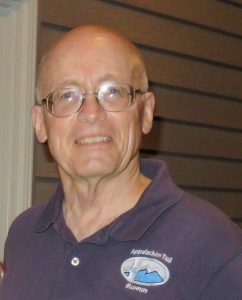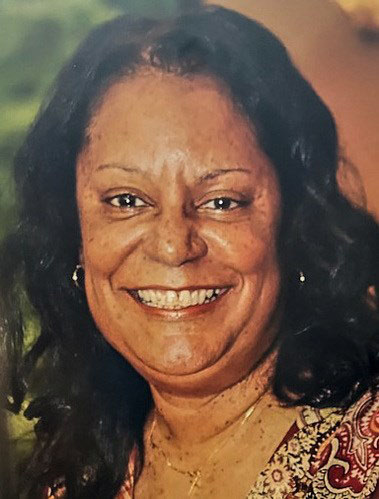Seven alumni joined the 2024 Hall of Achievement class at the Medill School of Journalism, Media, Integrated Marketing Communications at Northwestern University. This is the highest honor Medill bestows on its graduates.
“These seven individuals have distinguished themselves with exceptional accomplishments in their fields, from media to top brands to government,” said Medill Dean Charles Whitaker. “It is a pleasure to be able to recognize their impressive contributions with induction into the Hall of Achievement.”
Jonathan Eig (BSJ86)
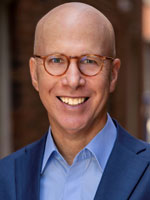 Eig is the author of six books, four of them New York Times best sellers. His most recent book, published in 2023, “King: A Life” won the 2024 Pulitzer Prize for Biography and has been longlisted for the National Book Award and named one of the best books of the Year by The New York Times, The Washington Post and Time Magazine. “King: A Life” also recently garnered the New-York Historical Society’s annual Barbara and David Zalaznick Book Prize in American History, endowing Eig with the title of American Historian Laureate.
Eig is the author of six books, four of them New York Times best sellers. His most recent book, published in 2023, “King: A Life” won the 2024 Pulitzer Prize for Biography and has been longlisted for the National Book Award and named one of the best books of the Year by The New York Times, The Washington Post and Time Magazine. “King: A Life” also recently garnered the New-York Historical Society’s annual Barbara and David Zalaznick Book Prize in American History, endowing Eig with the title of American Historian Laureate.
In addition, Eig’s previous work, “Ali: A Life,” won a 2018 PEN America Literary Award and his debut book “Luckiest Man: The Life and Death of Lou Gehrig” received the Casey Award. Eig’s fourth book, “The Birth of the Pill,” will soon be staged as a theatrical production by TimeLine Theatre in Chicago.
Eig worked for his hometown newspaper, The Rockland County (N.Y.) Journal News at age 16 and went on to report for The New Orleans Times-Picayune, The Dallas Morning News, Chicago Magazine and The Wall Street Journal.
He’s appeared on the Today Show, NPR’s Fresh Air, and The Daily Show with Jon Stewart. Eig served as a producer on the PBS documentary Muhammad Ali, directed by Ken Burns. Eig has spoken at the National Cathedral, the Apollo Theater and the National Baseball Hall of Fame.
Eig was a “Cherub” in the Medill-Northwestern Journalism Institute before enrolling at Medill.
Lisa Franchetti (BSJ85)
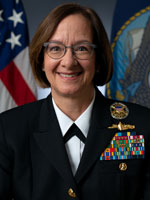 Adm. Lisa Franchetti assumed the duties as Chief of Naval Operations Nov. 2, 2023. She is the first woman to serve as Chief Naval Officer and the first woman to serve as one of the Joint Chiefs of Staff. She was the second woman promoted to four-star admiral in the U.S. Navy.
Adm. Lisa Franchetti assumed the duties as Chief of Naval Operations Nov. 2, 2023. She is the first woman to serve as Chief Naval Officer and the first woman to serve as one of the Joint Chiefs of Staff. She was the second woman promoted to four-star admiral in the U.S. Navy.
Franchetti is a surface warfare officer who received her commission in 1985 through the Naval Reserve Officer Training Corps Program at Northwestern.
Her personal awards include the Defense Distinguished Service Medal, Distinguished Service Medal, two awards of the Defense Superior Service Medal, five awards of the Legion of Merit, six awards of the Meritorious Service Medal, four awards of the Navy and Marine Corps Commendation Medal, and two awards of the Navy and Marine Corps Achievement Medal.
Franchetti’s operational tours include auxiliaries officer and first division officer on USS Shenandoah (AD 44); navigator and jumboization coordinator onboard USS Monongahela (AO 178); operations officer on USS Moosbrugger (DD 980); combat systems officer and chief staff officer for Destroyer Squadron (DESRON) 2; executive officer of USS Stout (DDG 55); and assistant surface operations officer on USS George Washington Strike Group. She commanded USS Ross (DDG 71) and DESRON-21, embarked on USS John C. Stennis (CVN 74). She also served as commander of Pacific Partnership 2010, embarked on USNS Mercy (T-AH 19).
Ashore, Franchetti’s assignments include commander, Naval Reserve Center Central Point, Oregon; aide to the Vice Chief of Naval Operations; protocol officer for the commander, U.S. Atlantic Fleet; 4th Battalion officer at the U.S. Naval Academy; division chief, Joint Concept Development and Experimentation, on the Joint Staff, J7; deputy director of International Engagement and executive assistant to N3/N5 on the Navy staff; and military assistant to the Secretary of the Navy.
Her flag officer assignments include commander, U.S. Naval Forces Korea; commander, Carrier Strike Group 9; commander, Carrier Strike Group 15; chief of staff, Strategy, Plans and Policy (J-5) Joint Staff; commander, U.S. 6th Fleet/commander, Naval Striking and Support Forces NATO/deputy commander, U.S. Naval Forces Europe and U.S. Naval Forces Africa; deputy Chief of Naval Operations for Warfighting Development, N7; director for Strategy, Plans and Policy (J-5), Joint Staff; and Vice Chief of Naval Operations.
Joe Fryer (BSJ00)

A decade into his tenure at NBC News, Fryer works both in the traditional TV side of the business, and in the streaming world.
He anchors the morning hours of NBC News NOW, the network’s fast-growing streaming platform. He’s also the feature anchor of “Saturday TODAY,” where he hosts PopStart and other segments on the weekend show. His reporting is featured regularly on TODAY, NBC Nightly News and MSNBC.
Fryer joined the network in 2013 and spent seven years as a Los Angeles-based correspondent before moving to New York in 2020.
At NBC, Fryer also teaches writing classes within the network and developed a storytelling course for NBCU Academy, a multiplatform training and development program. He is a faculty member of the NPPA Advanced Storytelling Workshop, a weeklong annual event hosted by the National Press Photographers Association.
Prior to joining NBC, Fryer reported for several local stations including KING-TV in Seattle, KARE-TV in Minneapolis and WTVF-TV in Nashville. Early in his career, he also worked at WKYT-TV in Lexington, Ky. and WBAY-TV in Green Bay, Wis.
Upon graduating from Medill, Fryer received the Gary Cummings Memorial Award.
During his career, he has been honored with four national Edward R. Murrow Awards, including one for writing. Further, he has won 19 regional Emmys, 11 regional Murrows, two National Headliners and three Sigma Delta Chi Awards. At the network level, he has been nominated for four national Emmys. In 2022, he was named “Journalist of the Year” by the Association of LGBTQ+ Journalists (NLGJA) and won a GLAAD Media Award for his reporting on HIV/AIDS.
Kimberley Crews Goode (BSJ87)
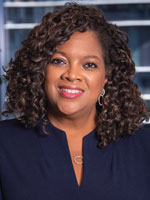 Goode serves as the chief communications and social impact officer of BMO where she leads communications, media relations, government affairs and community engagement.
Goode serves as the chief communications and social impact officer of BMO where she leads communications, media relations, government affairs and community engagement.
Prior to joining BMO, Goode served leadership roles for companies including American Express, Prudential Financial, Kellogg Company, Northwestern Mutual and Blue Shield of California. She has helped organizations through milestones such as Y2K, global mergers and a vaccine rollout for California. As a corporate executive, she has been recognized as one of the Most Influential Women and among the Top 100 Most Influential Black Executives in Corporate America by Savoy magazine and as an Outstanding Woman in Marketing and Communications by Ebony magazine.
Goode started her career as a journalist for the Grand Rapids Press and earned induction into the PR Week Hall of Fame for her work in strategic communications. She also was named Communicator of the Year for the International Association of Business Communicators.
Goode has championed diversity in PR through her work in the Page Society, a professional association for the highest ranking leaders in the field. She served as a member of the board for many years, led diversity programs and mentored women and people of color who are now leading communications for global organizations.
Goode leverages her expertise to help organizations manage reputation through board service. She serves as a corporate director for Providence Health Plan and sits on several nonprofit boards, including the Carol Shields Prize for Fiction, which is one of the largest awards for women authors in North America.
Michael Lazerow (BSJ96, MSJ96)
 Lazerow is an entrepreneur who co-founded Buddy Media, a software company that was acquired by Salesforce.com for $745 million, where he served as chief strategy officer. He has invested in more than 100 early-stage companies, including Facebook, Scopely and Liquid Death.
Lazerow is an entrepreneur who co-founded Buddy Media, a software company that was acquired by Salesforce.com for $745 million, where he served as chief strategy officer. He has invested in more than 100 early-stage companies, including Facebook, Scopely and Liquid Death.
Lazerow has received awards and honors, including the Entrepreneur of the Year Award from Ernst & Young, Fortune Magazine’s 40 Under 40, Crain’s New York 40 Under 40, #1 on the Silicon Alley 100, and the Ad Age Digital A-List.
Currently Lazerow is a co-founder and general partner of Velvet Sea Ventures, a multi-stage venture capital firm that provides seed-to-growth stage capital investments and strategic support.
As a philanthropist, he and his wife Kass established the Kass and Michael Lazerow Family Foundation and were recognized with the Game Changer Award by Cycle for Survival for their leadership in helping to raise more than $350 million for breakthrough cancer research programs. The couple was also awarded the Leader of the Future Award by the Frances Hesselbein Leadership Institute.
Lazerow is a long-time member of Medill’s Board of Advisers.
Jerry Tarde (BSJ78)
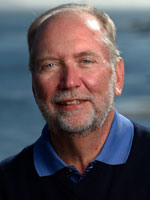 Tarde is the chairman and editor-in-chief of Golf Digest and global head of golf strategy and content for Warner Bros. Discovery. Tarde became an intern at Golf Digest in 1977 and was named editor in 1984 and is now the longest serving chief editor in media.
Tarde is the chairman and editor-in-chief of Golf Digest and global head of golf strategy and content for Warner Bros. Discovery. Tarde became an intern at Golf Digest in 1977 and was named editor in 1984 and is now the longest serving chief editor in media.
Tarde was given a Silver Gavel from the American Bar Association for his journalism on discrimination in private clubs. He also received lifetime achievement awards from the PGA of America, Augusta National Golf Club, the National Golf Foundation and the Metropolitan (N.Y.) Golf Association. He earned nine first-place awards from the Golf Writers Association of America, including for best column four times in the five years between 2018 to 2023.
The Jerry Tarde Courage Award in his name is given annually by the African American Golf Expo to an industry leader for commitment to people of color in golf. Tarde serves as a national trustee of The First Tee and is on the board of Planet Word, a literacy museum in Washington, D.C.
Carlos Zepeda (IMC98)
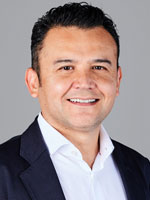 Zepeda is senior vice president, Consumer Connections, Insights and Strategy for Moet Hennessy USA. He joined Moet Hennessy as vice president for Belvedere Vodka in 2014, and subsequently held some strategy and transformation roles both in marketing and enterprise-wide focused embedding the 2030 Strategy for the US market.
Zepeda is senior vice president, Consumer Connections, Insights and Strategy for Moet Hennessy USA. He joined Moet Hennessy as vice president for Belvedere Vodka in 2014, and subsequently held some strategy and transformation roles both in marketing and enterprise-wide focused embedding the 2030 Strategy for the US market.
Prior to Moet Hennessy, he was vice president of Marketing for Havaianas, leading the expansion of the Brazilian brand in the US.
He previously held several marketing roles at PepsiCo over a span of 10 years where he led marketing for Diet Pepsi, Starbucks Frappuccino Ready-to-Drink, and customer marketing for the Foodservice division. He served as chair of Adelante, PepsiCo’s LatinX employee resource group in the US.
Earlier in his career, Zepeda held consulting positions at Ernst & Young’s Customer Connections practice and at Peppers and Rogers Group.
Zepeda a board member of ANA’s Educational Foundation and an advisory board member of Fashion Institute of Technology’s global marketing program.
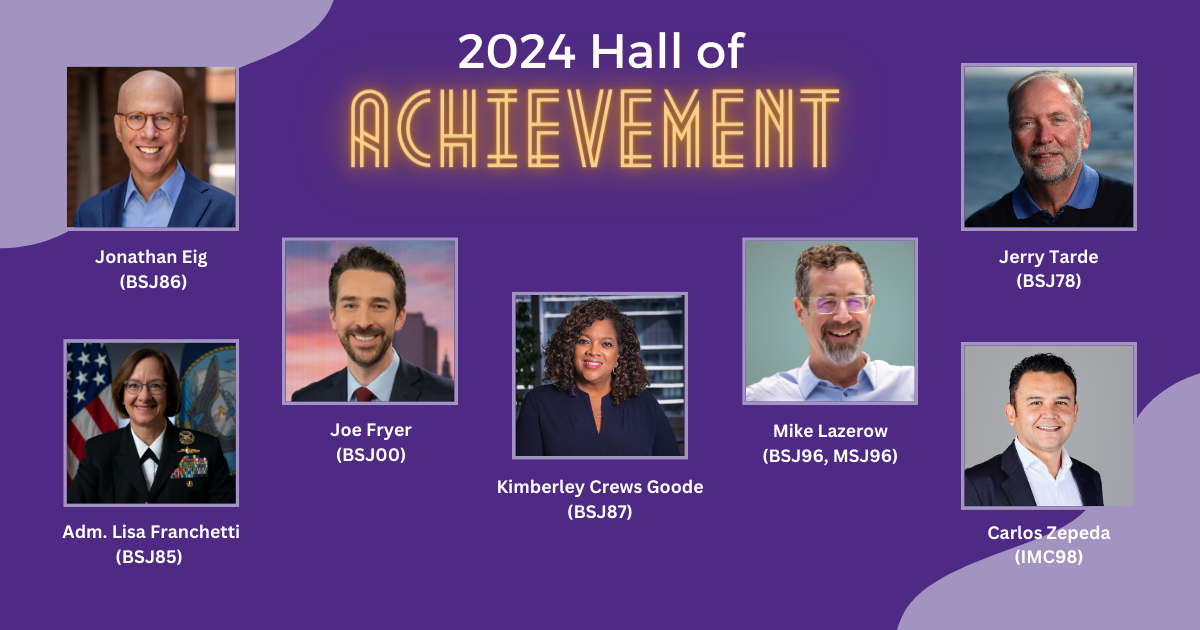
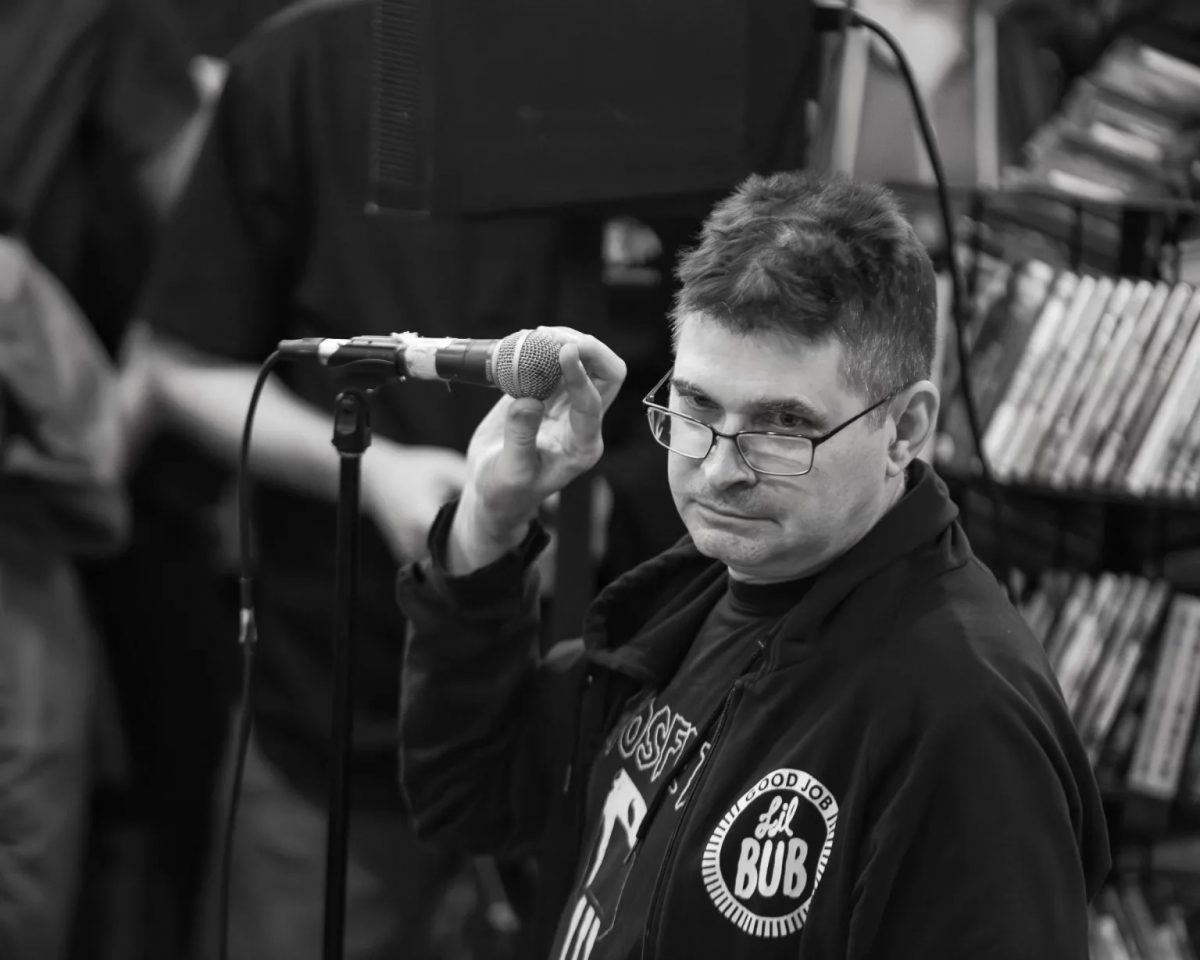
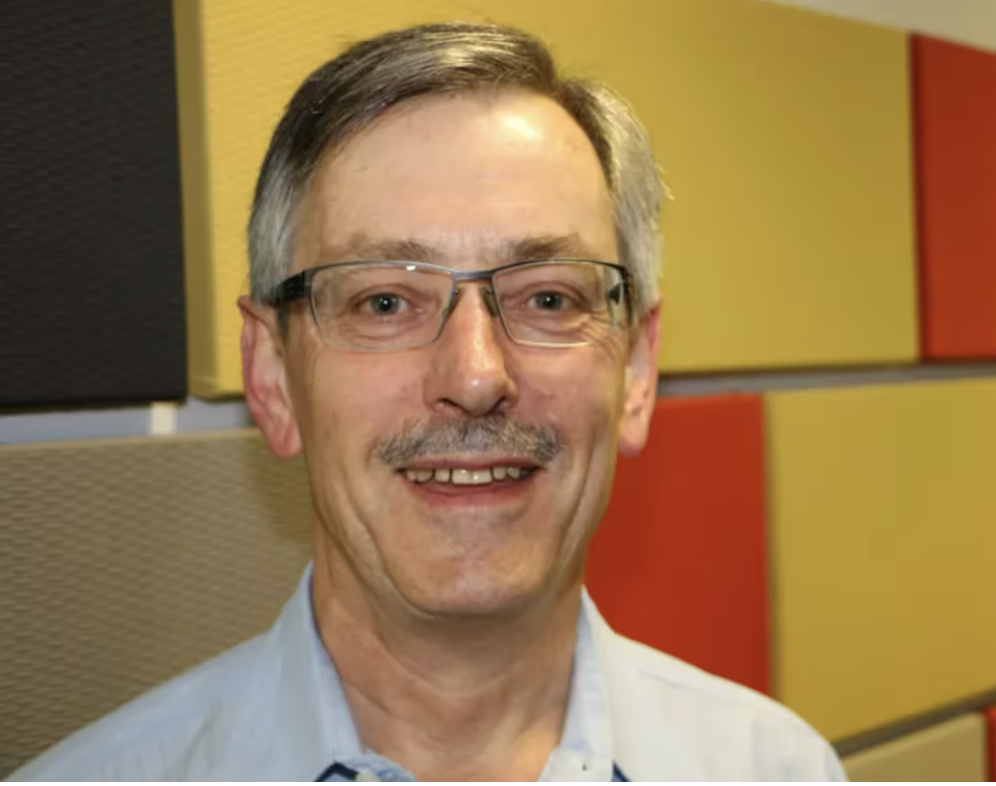
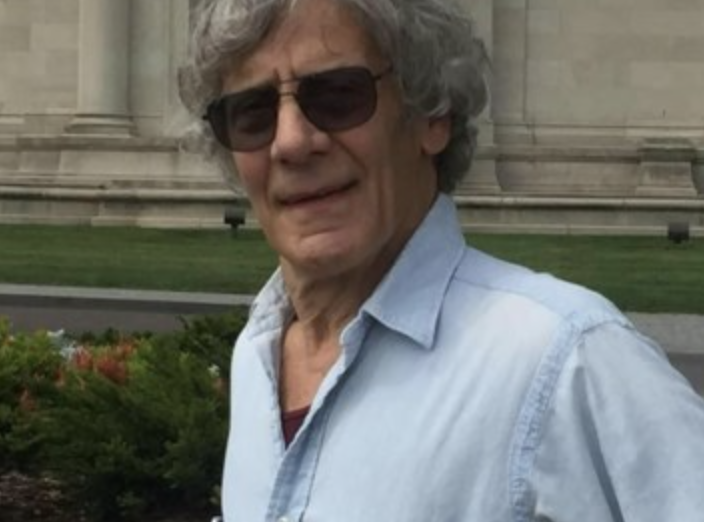
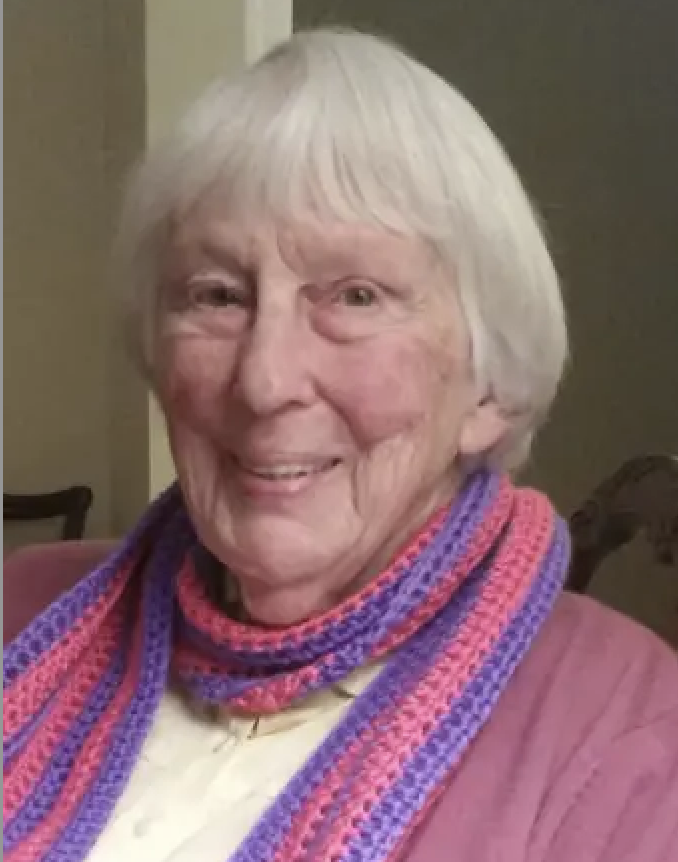

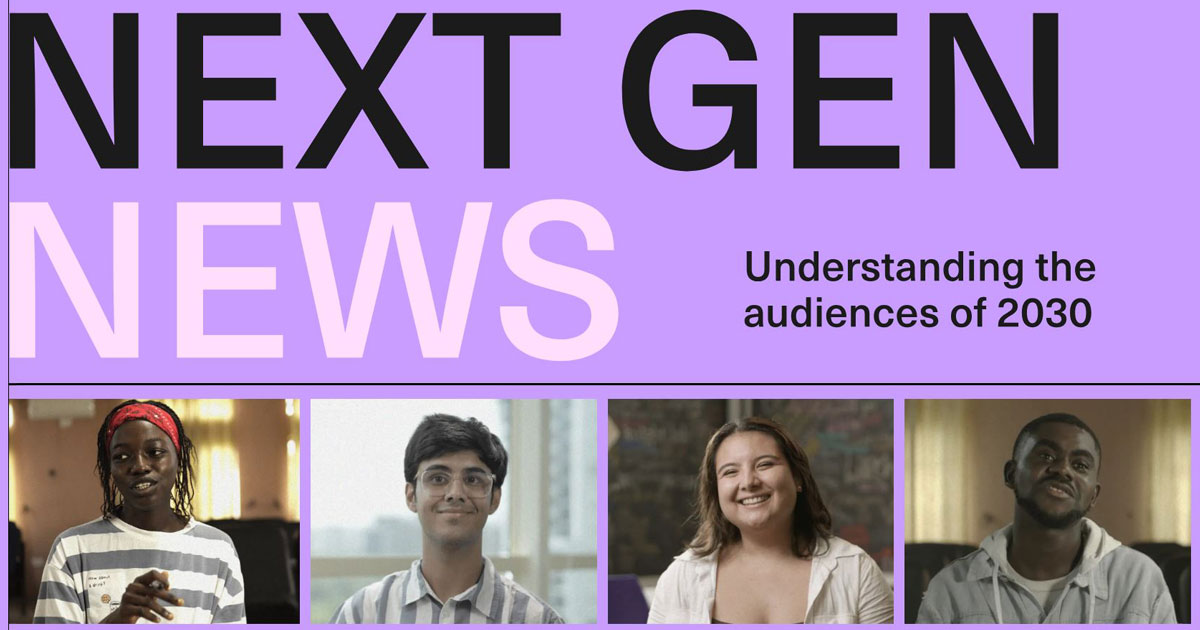

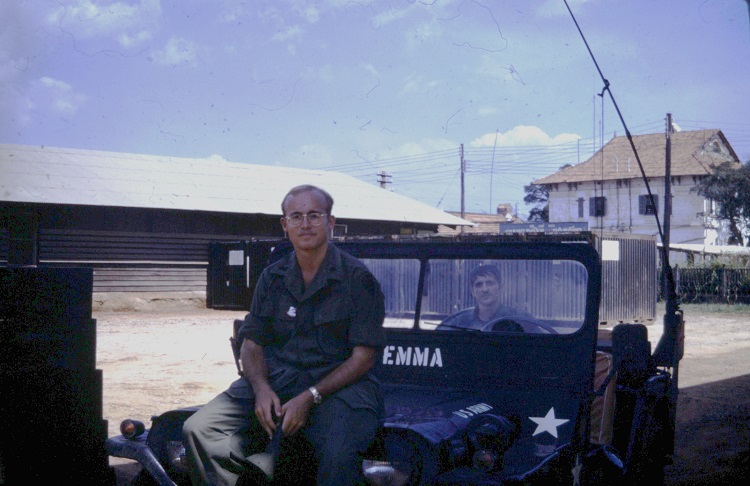
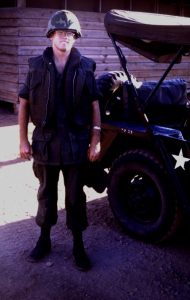
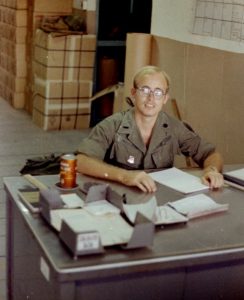 Duties as the 5th Transportation Company supply officer were pretty much routine, not a lot of excitement. It was not like we were in an active combat zone, even though agent orange was dropped outside our compound on a regular basis to kill the foliage. We did keep our guards up since we were vulnerable to attacks on the ammunition ships in our harbor.
Duties as the 5th Transportation Company supply officer were pretty much routine, not a lot of excitement. It was not like we were in an active combat zone, even though agent orange was dropped outside our compound on a regular basis to kill the foliage. We did keep our guards up since we were vulnerable to attacks on the ammunition ships in our harbor.